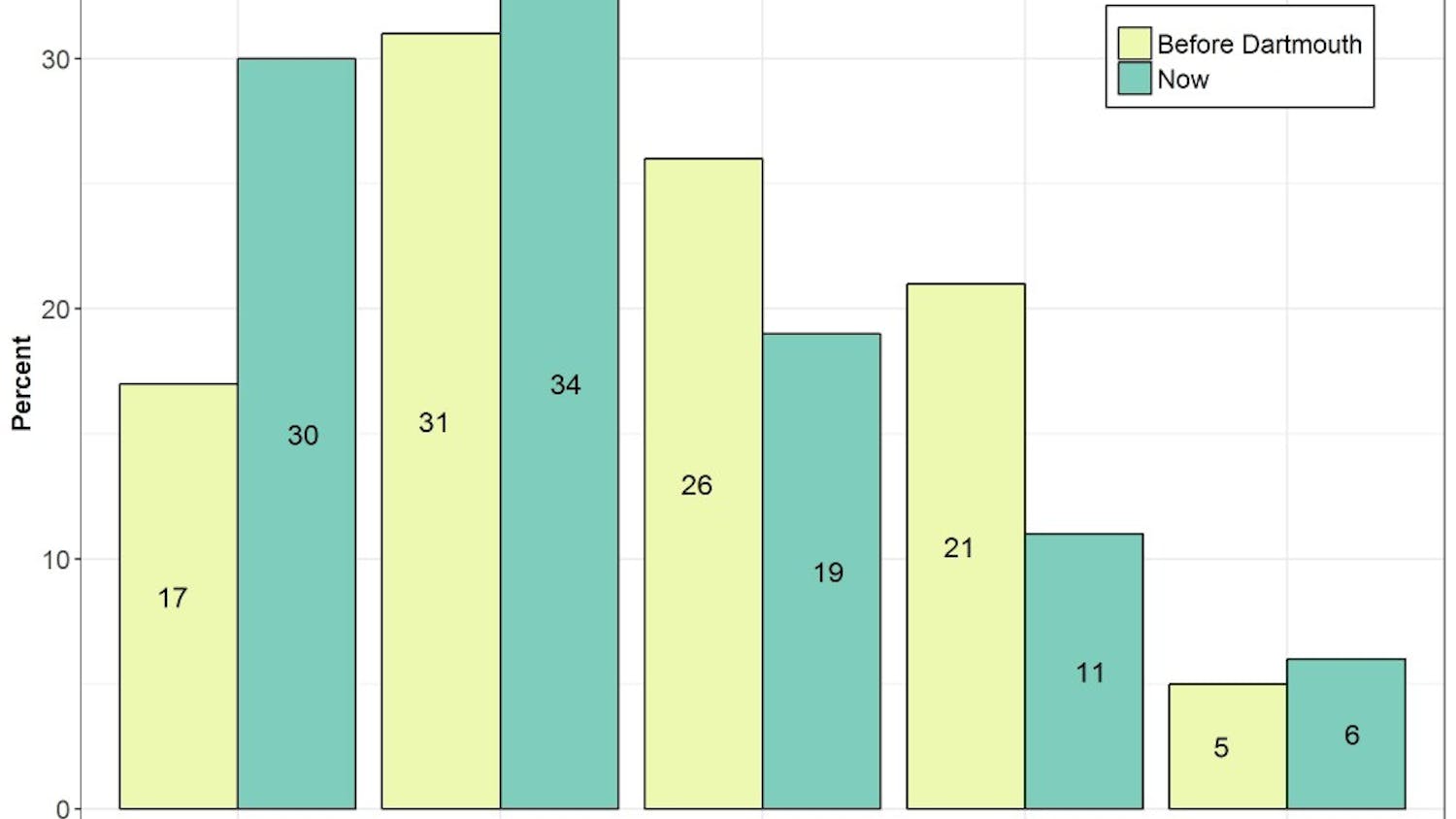As the national demand for student accessibility services increases, so have efforts to make Dartmouth more accommodating for students with disabilities. This fall, several students will launch Access Dartmouth, a group advocating for disabled students at the College. The Student Accessibility Services Office is also working on implementing a new data management system and expanding its current testing centers.
“Universities around the country are changing orientation and retooling to deal with the national trends — the increasing demand for these types of services,” dean of the College Kathryn Lively said. “It’s just a matter of best practices and thinking about how can we can evolve to meet the number of students coming in needing accommodations.”
Dean of undergraduate students Brian Reed said he has seen requests for accommodations at Dartmouth increase in the last few years.
“We’re still not quite at what would be considered national averages just yet, but we’re on our way and I think we’ve seen a really steep increase in requests for services and accommodations,” he said.
According to the National Center for Education Statistics, from 2007-2008 10.9 percent of undergraduates reported having disabilities. From 2011-2012, the percentage was 11.1 percent. For the 2015-2016 school year, the most recent data available, the percentage of students with disabilities was 19.4 percent.
Access Dartmouth vice president Abby Bresler ’21 said she has had positive experiences working with SAS, but that she believes more can be done by the College to address systemic problems affecting students with disabilities. Some structural accessibility issues she named at Dartmouth were a lack of accessible entrances, buildings with no elevators and classrooms without recording capabilities or white boards. White boards offer better contrast for people who have trouble seeing, Bresler said. She described these concerns as “low-hanging fruit” that still need to be addressed at the College.
“I’ve had really awesome experiences with SAS, but they only have so many staff members and they have so many students who have to come to them to get these ‘band-aid’ fixes — myself included — because the system is so broken,” she said.
She said she hopes Access Dartmouth can work to address systematic issues at the College and help Dartmouth move toward a model of universal design. The aim of universal design, she said, is to design while taking into consideration the needs of people with variations in their abilities, rather than adapting to those needs at a later time.
“I hope [SAS] can find some way to shift that balance so that eventually there are less little accommodations that need to happen, because the actual curriculum and the school is universally designed,” she said.
Reed said SAS is currently working on is setting up a new system to manage data for the office and streamline communication. The incoming SAS director, Alison May ’97, who will start her tenure in September, was chosen in part due to her experience implementing data management systems at Northwestern University, according to Reed.
“One of the things that we’re considering is changing our computer data tracking system,” Lively said. “[May] has familiarity and experience with rolling out the system that we’ve been looking at, at her current institution.”
The new system, Reed said, would automate some communications to faculty and students regarding adjustments, streamline and automate testing scheduling, document conversion and help the office track the check-out and return of technologies that students borrow.
According to Reed, the timeline for implementation has not been determined yet, but that the office is working with the Dartmouth information technology team to see if the system can be compatible with DartHub.
He added that the SAS office is also looking to expand its current testing center. Last year, he said SAS inherited classrooms in the basement of Carson hall that they use for students whose accommodations require extended time on exams or a quiet setting. Many departments do not have the space or personnel to accommodate multiple test rooms, he said, so the testing center provides an allotted space and staff.
Bresler said that Access Dartmouth has several ideas in the works for the upcoming academic year. She also said that she is optimistic about working with the new director when she takes over in the fall, given May’s range of experiences.
“I feel really confident,” she said. “[May] has so much experience, both with accessibility in higher education and also with intersectionality. She’s worked with low income and first-generation college students a lot, and she’s worked both at Northwestern — an institution similar to Dartmouth — and in community college settings.”
Rachel is a '21 from Plainsboro, NJ and is currently serving as the editor-in-chief of the 177th directorate. She is pursuing a double major in economics and philosophy.



